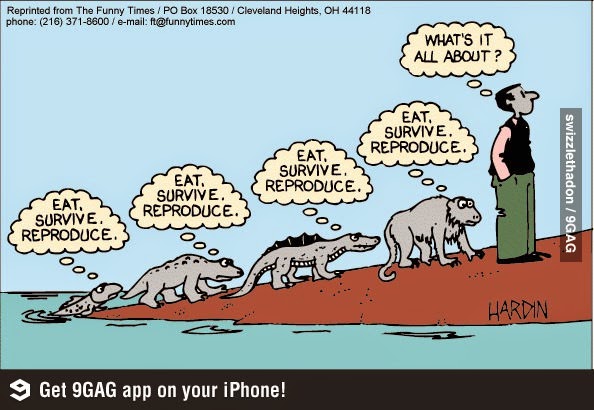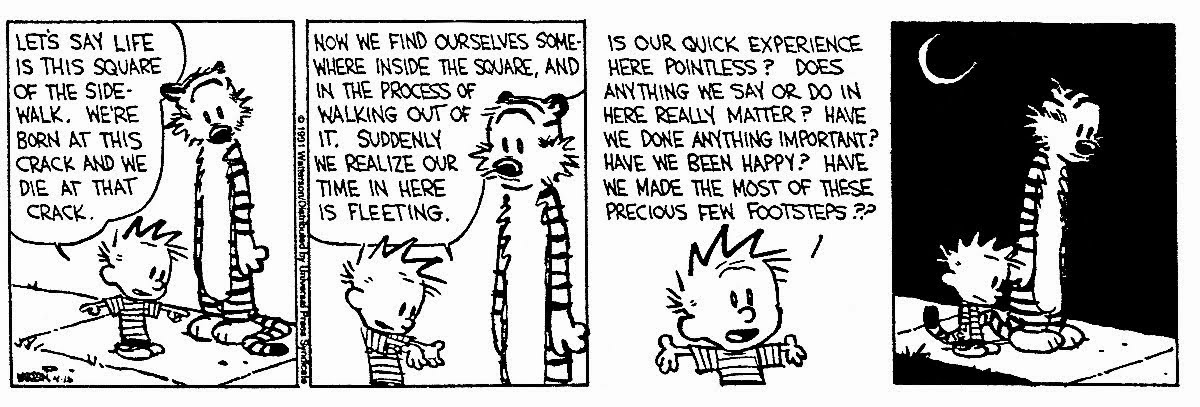Grandeur
Reflection
Philosophy
March 2015

I am currently reading Barbara Kingsolver's collection of essays Small Wonder (which as been refreshing so far, and I recommend it!). The epigraph is a quote from Wendell Berry which reads, "To treat life as less than a miracle is to give up on it." This is a theme about which I've often wondered, especially since I no longer count myself among those who believe in miracles. Why is it that, for something to be important, beautiful, or meaningful, it must defy explanation? Walt Whitman portrays this same theme wonderfully in his "When I Heard the Learn'd Astronomer":
When I heard the learn'd astronomer,
When the proofs, the figures, were ranged in columns before me,
When I was shown the charts and diagrams, to add, divide, and measure them,
When I sitting heard the astronomer where he lectured with much applause in the lecture-room,
How soon unaccountable I became tired and sick,
Till rising and gliding out I wander'd off by myself,
In the mystical moist night-air, and from time to time,
Look'd up in perfect silence at the stars.
The boring figures, the charts, the measurements, all steal the magic of that beautiful, tranquil, night sky. What inspired this theme among our poets? Why does explanation seem to suck the life out of something? If life really arose from self-replicating molecules blindly following the laws of nature—if we are but a happy, chance-arrangement of matter, a local decrease in entropy at the expense of an increase elsewhere—why does that make life meaningless?
In other words, why do we have a sense that any meaning or beauty or wonder in our life must come from outside the realm of the naturally explainable? Why does meaning have to come from beyond us? Why isn't a terrestrial, fleeting meaning, meaning enough?

I've come across this theme over and over again recently and feel inspired to write down my own views. I usually see eye to eye with Wendell Berry on most things (e.g. everything in his "Manifesto: The Mad Farmer Liberation Front"), but here we must disagree. To me, that which inspires wonder is not synonymous with the inexplicable (I've written a little about the epistemology behind my position here). No light is stolen from the stars because I learned about hydrostatic equilibrium and nuclear fusion. No ounce of love is lost when it is explained as part evolutionary strategy and part social construct. Science might one day answer why anything exists at all (some scientists think that it already can); would this explanation then suddenly make life mean nothing?
For me, it comes down to this little thought experiment: imagine, just for a minute, that we are simply matter in motion—we have no soul, no part which continues after death. Imagine that we are simply the most intelligent of the mammals, the handiest of creatures. Imagine that all of the beauty, love, and meaning in your life could be calculated, differentiated, solved for, and explained away. Now ask yourself: how do those feelings of yours change? Does the love that you feel for your family suddenly empty itself of value, or even diminish in amount by a single iota? Does the night sky become less awesome? Does the silent forest become less majestic? How could they? Those experiences were real, they were powerful, and they were meaningful because they added to who we are and who we hope to become. What does it matter if their ultimate explanation stops in the natural world instead of passing beyond into something else?

In the closing lines of On the Origin of Species, Darwin writes,
That we are here, that you began as star dust, that every single generation of your ancestors managed to survive and procreate, for billions of years, is astounding. And that we can explain the entire process without an appeal to the miraculous is almost just as astounding. I find meaning in quiet walks with my dog around the lake, in the curious babbling of my son, in the deep flavors of a good Cabernet. I find beauty in the vast emptiness of space, imagining this tiny little earth tumble through the void of its tiny little corner of our one little galaxy among billions. The life that Agata and I are building sends deep roots into the earth and into my being, strong enough to withstand the strongest of winds and hardest of freezes. All of these pockets of meaning are fleeting, temporal, and terrestrial, but they are diminished none for that; if anything their ephemeral nature only adds to their preciousness.
Life doesn't have to be a miracle for it to be cherished, and beautiful, and meaningful. But, maybe Wendell Berry has a point. Even if life is no miracle, perhaps we should treat it as such, for in the absence of a cosmic judge making all things right in the end, this is the only life we get, the only planet we get, the only chance we get to add something meaningful to the tides of history, before to dust we return.
